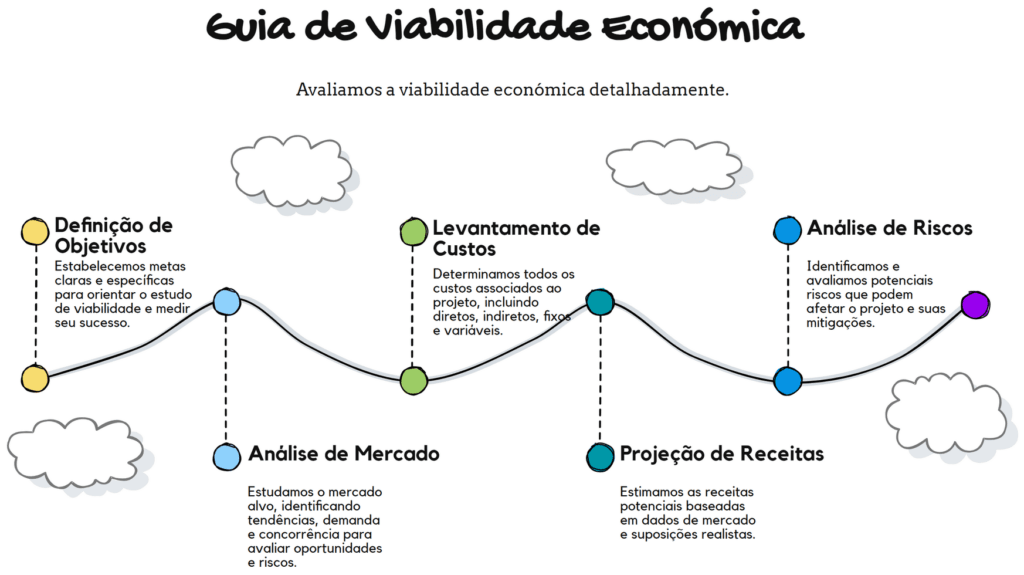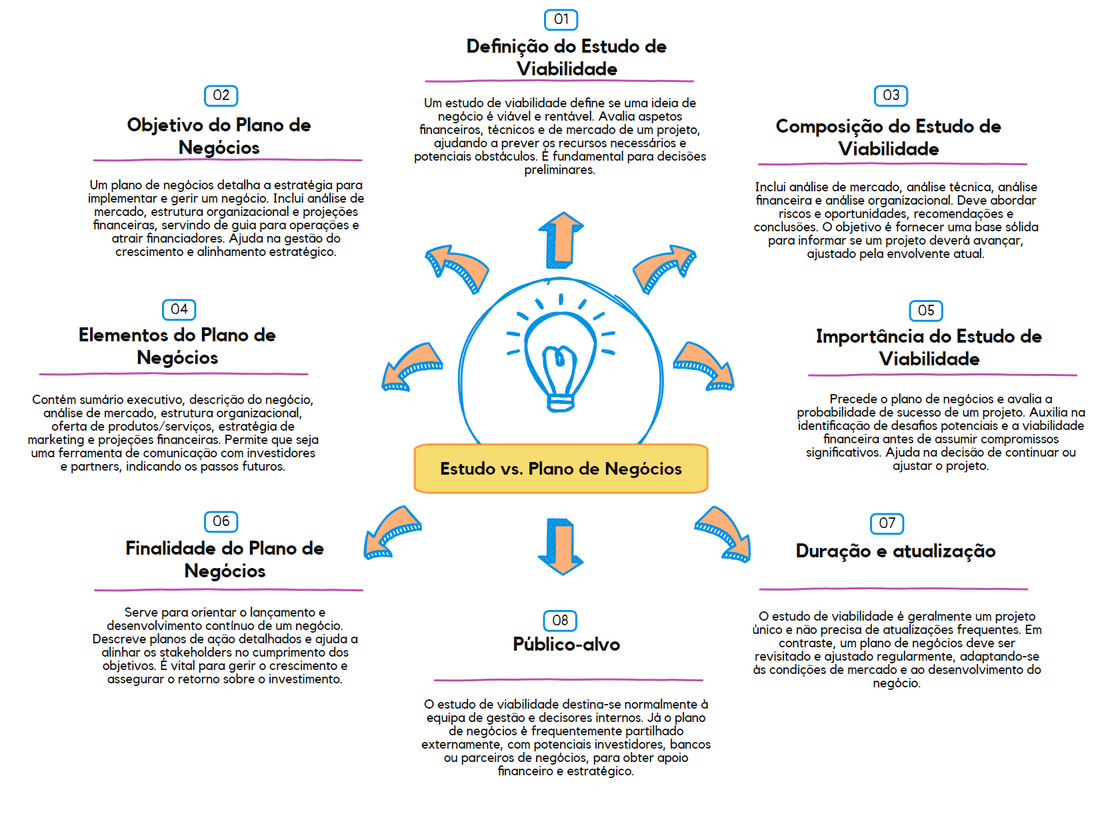- Evaluates potential profitability
- Identifies financial and economic risks
- Optimises resource allocation
- Increases the project's chances of success
At S&D Consultancy, our team of certified specialists follows a meticulous process to ensure that your feasibility study is comprehensive and accurate.
Let's start by taking an in-depth look at the Cape Verdean market.
This includes:
- Market size assessment
- Analysing industry trends
- Studying consumer behaviour
- Identifying the competition
We develop detailed financial projections, including:
- Cost and revenue estimates
- Projected cash flows
- Break-even analysis
- Calculating return on investment (ROI)
We identify and assess potential risks, such as:
- Economic fluctuations
- Regulatory changes
- Operational challenges
- Variations in market demand
We examine whether your project is technically feasible and operationally viable in the context of Cape Verde.

By choosing S&D Consultancy for your economic feasibility study, you will benefit from:
Our study provides concrete data and in-depth analyses, allowing you to make confident decisions about your project.
We identify opportunities to optimise your resources, maximising efficiency and minimising waste.
By identifying potential risks in advance, we help you develop strategies to mitigate them, protecting your investment.
A robust feasibility study increases the credibility of your project, making it more attractive to potential investors or financiers.

We met with you to understand your objectives and the scope of the project.
We collect all the relevant information about your project and the market.
We carry out a thorough analysis using advanced tools and methodologies.
We have prepared a detailed report with our conclusions and recommendations.
We present the results, answering all your questions.
We offer ongoing support to help you implement the study's recommendations.
Many entrepreneurs confuse a feasibility study with a business plan. Although related, they are distinct documents with different purposes.
- Focuses on the economic and financial viability of the project
- Realised before the decision to go ahead with the project
- More concise and centred on quantitative data
- The most comprehensive document detailing all aspects of the business
- Prepared after confirming the feasibility of the project
- Includes marketing, operations and management strategies

Don't let uncertainty hold up your project. An economic feasibility study from S&D Consultancy can provide the clarity and confidence you need to move forward.
Economic viability is the analysis that determines whether a project is financially viable and profitable. It is extremely important for projects, as it makes it possible to assess whether the investment will bring satisfactory returns, helping with decision-making and minimising risks. The economic feasibility study evaluates aspects such as costs, revenues, return on investment and cash flow, providing a solid basis for deciding whether the project is worth implementing.
The main types of feasibility studies include: 1) Technical feasibility study, which assesses whether the project is technically possible to carry out; 2) Operational feasibility study, which analyses whether the project can be successfully implemented and maintained; 3) Financial feasibility study, which examines whether the project is economically viable; 4) Legal feasibility study, which checks whether the project complies with laws and regulations; and 5) Environmental feasibility study, which assesses the impact of the project on the environment.
The feasibility study contributes significantly to the success of the project by providing a comprehensive analysis of all relevant aspects. It helps identify potential problems and challenges before the project is implemented, allows for better allocation of resources, provides a solid basis for strategic planning and helps set realistic goals. In addition, the feasibility study allows for a more accurate assessment of risks and opportunities, increasing the chances of achieving project success.
During the economic feasibility study, several important analyses are carried out, including: cost-benefit analysis of the project, cash flow projections, calculation of return on investment (ROI), break-even analysis, assessment of financial risks, estimation of operating and capital costs, revenue projections, and sensitivity analysis. These analyses help determine whether the project is financially viable and profitable in the long term.
The technical feasibility study assesses whether the project is technically possible to carry out with the available resources. This includes analysing technological requirements, the availability of necessary equipment and materials, the team's technical expertise, possible technical challenges and their solutions, and the ability to integrate with existing systems. This assessment is crucial in determining whether the project can be realised within the existing technical limitations.
The operational feasibility study is key to assessing whether the project can be successfully implemented and maintained within the existing organisational structure. It analyses aspects such as work processes, personnel needs, impact on current operations, training requirements and possible resistance to change. This study helps to ensure that the project is not only technically and financially viable, but can also be integrated and operated efficiently within the organisation.